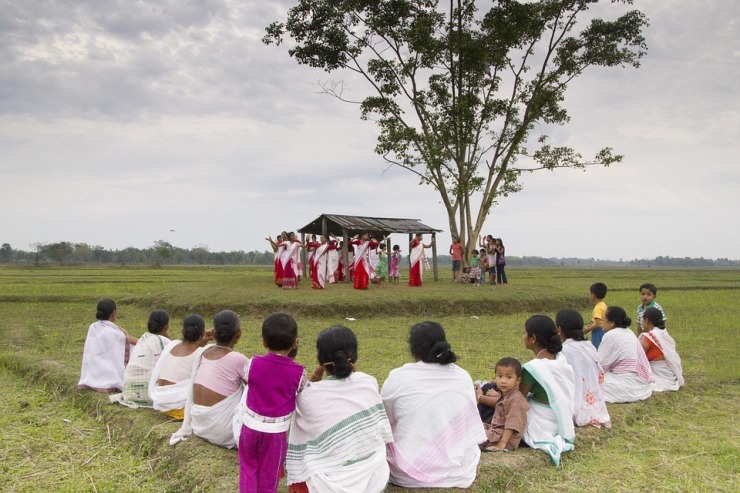
Claims of mass reconversions of indigenous Christians to ancient tribal faiths in Assam's Karbi Anglong district have been firmly refuted by Roman Catholic authorities, raising questions about the motives behind such inflammatory reports.
Bishop Paul Mattekatt of the Diphu diocese categorically denied recent right-wing Hindu media assertions that around 150 tribal people participated in rituals symbolising their reversion to the Barithe faith on March 18. The Karbi people are animists but are counted as Hindus in the Census of India. 16.5% of Karbis are Christians as per the 2011 Census.
The Karbis who follow animism hold the belief that Arnam Songsar or Songsar Recho is the creator of the Universe. Additionally, they acknowledge the existence of Heaven, with Barithe being revered as the god of Heaven and also called the god of Thunder. Unlike Hinduism, there is no practice of idol worship, nor are there temples or shrines. However, they do observe annual religious events known as Rongker, which take place at a designated location.
“I have personally verified the claims, and there is no evidence of any such conversions or reconversions happening in my diocese,” the prelate told UCA News.
The initial reports appeared in The Organizer, a publication linked to the Hindu nationalist Rashtriya Swayamsevak Sangh (RSS) group. The weekly alleged the rituals marked a “new chapter” in the so-called "Ghar Wapsi" (homecoming) movement aimed at reconverting religious minorities to Hindu or tribal faiths.
However, Bishop Mattekatt dismissed these claims as a “ploy to sensationalise religious conversions and target Christians.” He stressed that impoverished tribal Christians remain deeply rooted in their faith traditions, rejecting the notion that their beliefs are shallow or easily discarded.
“It is wrong to presume our people are shallow in their faith practices just because they are poor,” the bishop asserted.
The alleged reconversion reports have surfaced amidst growing tensions in Assam where hardliner Hindu groups have increasingly been targeting the Christian community and their institutions. Some Hindu outfits have even demanded the removal of Christian symbols from school premises and the abolition of religious attire for staff, alleging efforts to convert students.
Allen Brooks, spokesperson for the Assam Christian Forum, believes these groups are shifting tactics by reframing conversions as a “return to ancestral roots” when involving indigenous communities.
“Until recently, they made claims of reconverting Christians to Hinduism,” Brooks explained. “But now, they are using this rhetoric of ancestral faiths, which are distinct from Hinduism, to make their agenda more palatable.”
He warned that such malicious campaigns would likely persist as long as authorities fail to act against the perpetrators of hate and disinformation.
Moving beyond the immediate context of Assam, narratives such as “Ghar Wapsi” or reconversions often serve as tools for political and ideological agendas. The term “Ghar Wapsi” carries connotations of reclaiming a presumed lost heritage and feeds into Hindu nationalist sentiments. Propagated by Hindu right-wing groups like the RSS, the Ghar Wapsi campaign aims to reconvert Christians and Muslims to Hinduism under the guise of it being their ancestral faith.
However, the reality on the ground is often more nuanced and diverse than these simplified narratives portray. Critics argue that the Ghar Wapsi campaign violates religious freedom, is divisive and polarising, and employs coercive tactics such as financial inducements. This oversimplification of India's complex history of religious conversions worsens tensions between communities and undermines social harmony and secularism.




